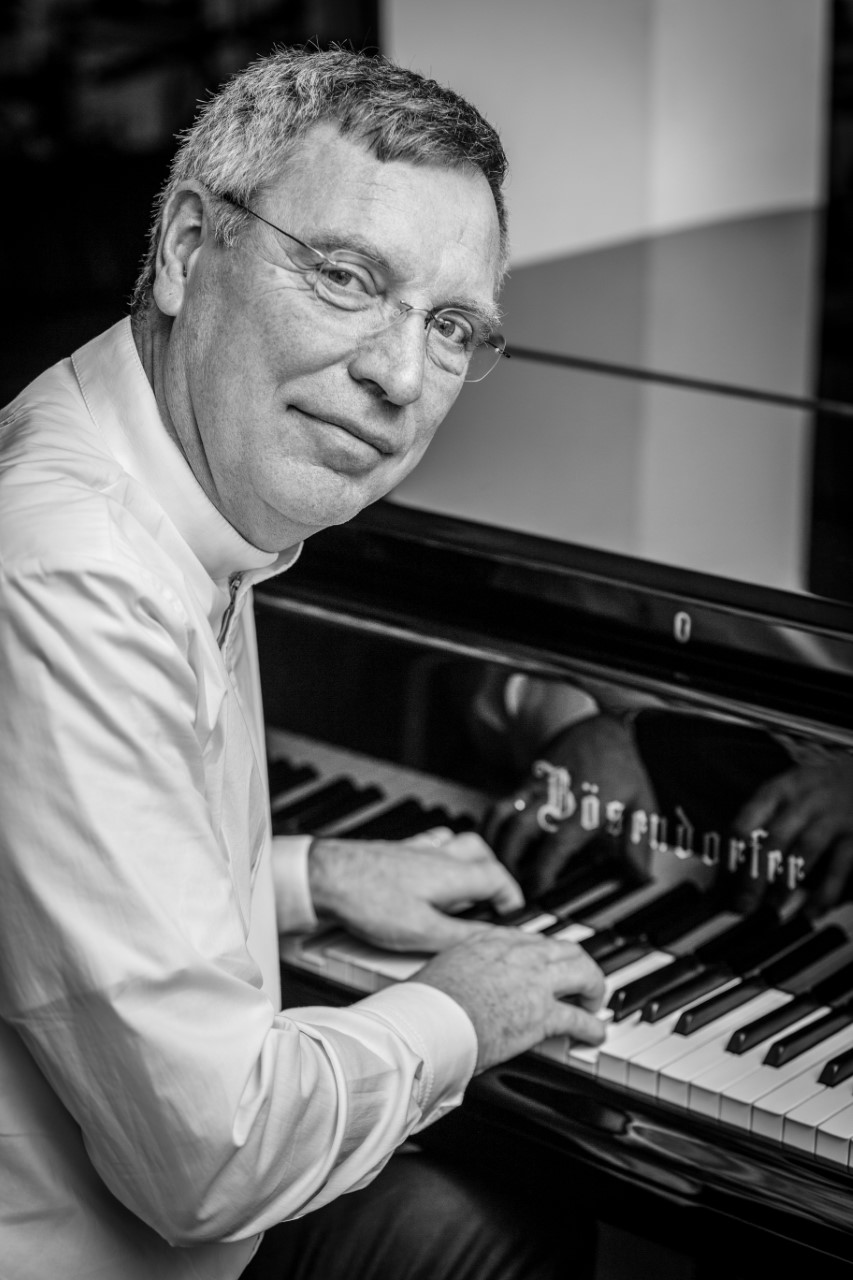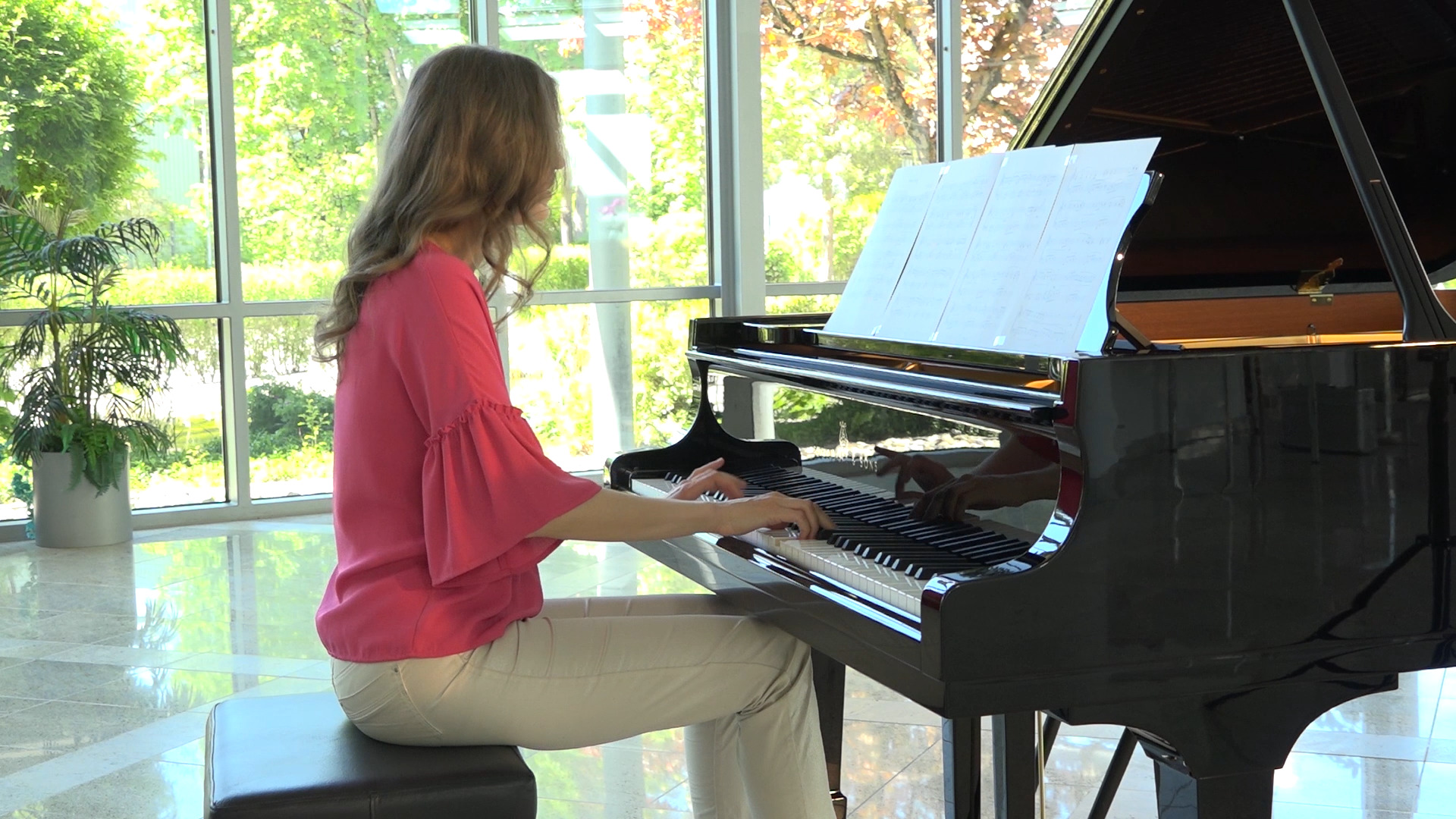About
Thomas Peter-Horas, born in 1959, began studying piano with Prof. A. Meyer-Hermann at the age of sixteen at the Frankfurt University of Music, where he passed the artistic maturity examination in 1983. From 1986 to 1989 he studied musicology, music education and German studies at the Johann Wolfgang von Goethe University in Frankfurt. In the mid-90s, he began to focus more on the instrument of his childhood - the accordion.
Since 1997 he has headed the music school in Neu-Isenburg, where he is also culturally active in a variety of ways. He was a member of the board of the regional association of the VdM (Association of German Music Schools) for several years and is a member of the jury for the cultural award of the Offenbach district. Since the beginning of 2012 he has been chairman of the "Youth Orchestra of the Offenbach District" initiated by the music schools of the Offenbach District - in short the District Youth Orchestra or - even shorter - KJO.
He also works as an author / editor, among others. for the saxophone publisher "Chili-Notes" and the renowned Edition Peters, Leipzig. There appeared "The Piano Book" and "The Four-Hand Piano Book", piano music collections that he published together with Sibylle Cada, professor at the Frankfurt University of Music, and the "Celtic Piano Book", a co-production with the guitarist and Irish folk specialist Patrick Steinbach. The latest result of his work for Edition Peters is the "Neu-Isenburg Song Book".
Thomas Peter-Horas is active as a pianist and composer in many areas; his experiences range from classical repertoire to jazz, pop and rock music. He has released several CDs with his own compositions - most of which have also appeared in print. In 2004 he won the Hessian Rock Prize as a keyboarder of a band - shortly before that he played Beethoven's first piano concerto with the Neu-Isenburg Chamber Orchestra in the Neu-Isenburg Hugenottenhalle.
In May 2008 he was nominated for the art award "Das goldene Segel" by the city of Bad Zwischenahn; his composition “Am Meer” for alto flute, bassoon and accordion was heard in a sound installation in the city's spa gardens in summer 2008. In March / April 2009 Thomas Peter-Horas worked as a keyboarder in the production "Angels in America" by Peter Eötvös at the Frankfurt Opera.
In the autumn of the same year he was awarded the cultural prize of his hometown Neu-Isenburg.
Together with his wife Ulrike Fröhling (bassoon), he forms the duo "Unerhört Fagott". A selection of his compositions for the duo were published in April 2014 by the music publisher "Accolade". In July 2015 the CD "Unerhört Fagott" was released, a year later the sampler "Tango Pasión" (contains the piece "Egotango") on the Berlin label "Edition46".
In 2018, his "Very easy duets" for saxophone and piano were published by the Frankfurter Chili-Notes-Verlag. These are duets that are so easy for both instruments that they can be played after only a few weeks of learning. In 2019, the second CD of "Unheard Bassoon" was released under the title "The Easy Life".

